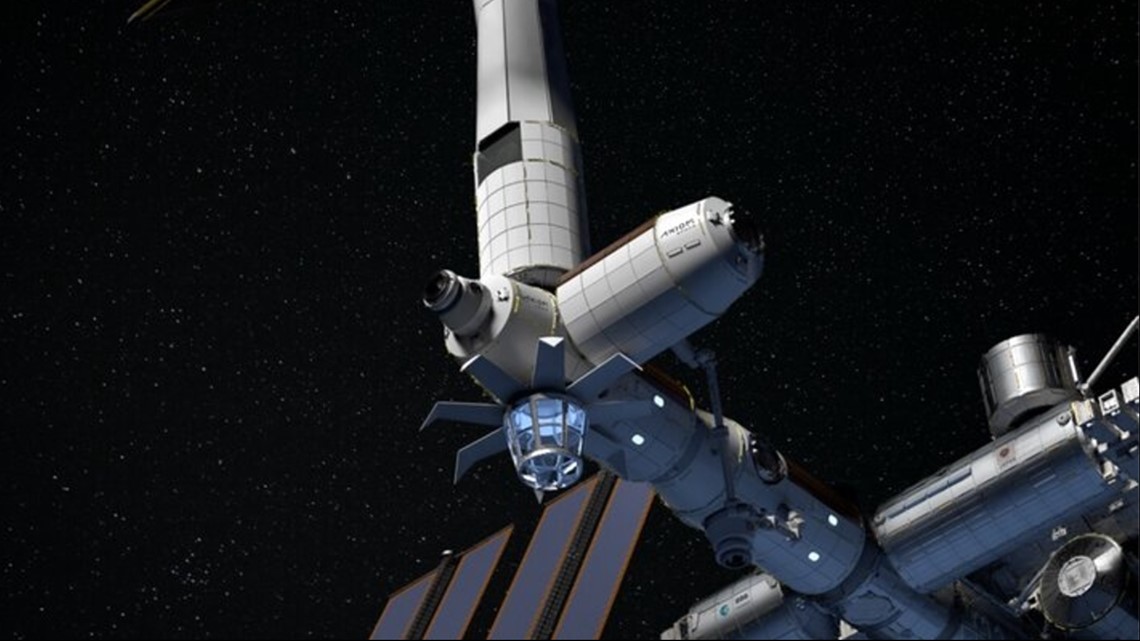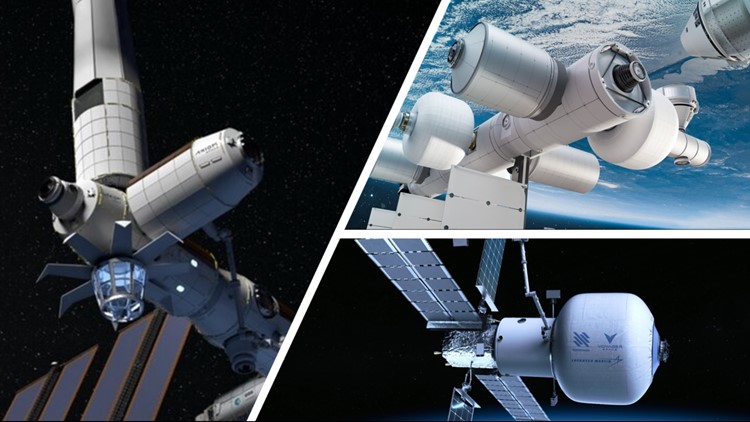WASHINGTON, D.C., USA — After more than 20 years of humans living in space, the International Space Station is slowly beginning to approach its end.
The football field-sized orbiting laboratory is approved to operate through at least 2024 but as the years go on, so do the hopes for extending its life.
Kathy Lueders, NASA's Associate Administrator of Space Operations, in a recent video said the agency is "getting ready to further use the space station for another 10 years."
That puts the ISS in operation until 2030. Even with the rumblings, others are starting to emerge with space station concepts of their own. All of which will be completed in the timeframe in which the International Space Station could meet its demise.
But what do these concepts offer that space's current orbiting laboratory doesn't? Let's find out.
Blue Origin: Orbital Reef
The space company backed by billionaire Jeff Bezos is graduating from rockets to commercial space stations.
Blue Origin announced it is partnering with Sierra Space to bring "Orbital Reef" into low Earth orbit by the second half of this decade.
"The station will open the next chapter of human space exploration and development by facilitating the growth of a vibrant ecosystem and business model for the future," Blue Origin wrote in a press release.
Boeing, Redwire Space, Genesis Engineering Solutions and Arizona State University will also play a role in the commercial space station's development.
But what makes it different than the ISS we know today? Well, it will be more modern for starters and is designed to give anyone the opportunity to "establish their own address on orbit."
According to Blue Origin, it will also work as a mix-use business park, of sorts, by providing things like space transportation and habitation to customers.

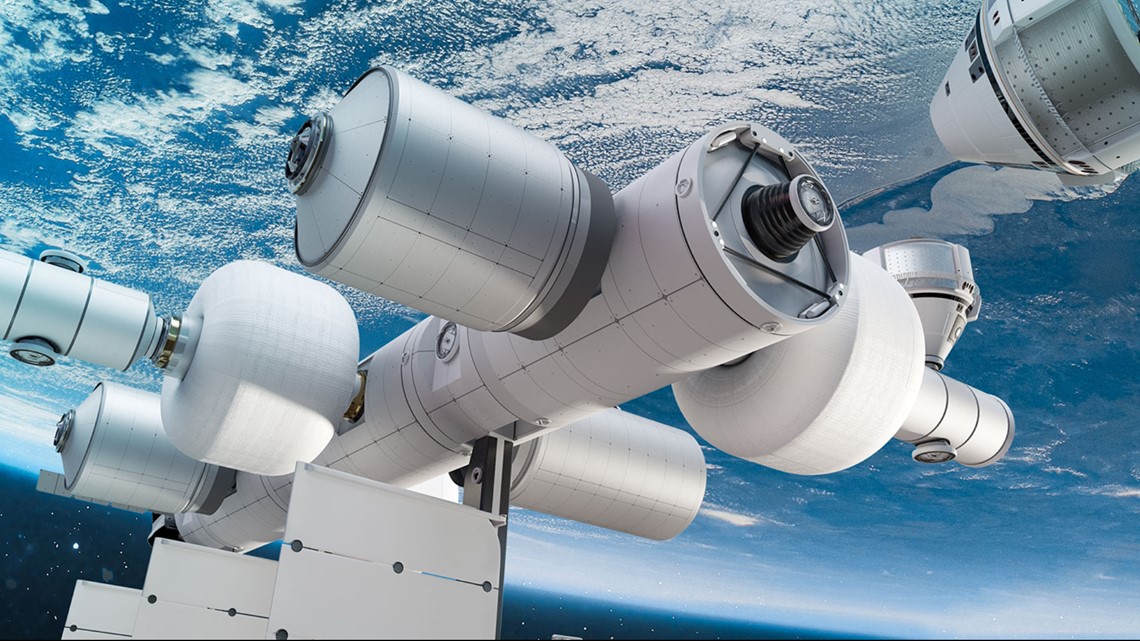
In an effort to be the "premier commercial destination in low Earth orbit," Orbital Reef will include human-centered space architecture, amenities and "world-class" services.
It also looks to allow flexibility for any nation or customer to dock at the space station.
“For over sixty years, NASA and other space agencies have developed orbital space flight and space habitation, setting us up for commercial business to take off in this decade,” said Brent Sherwood, Senior Vice President of Advanced Development Programs for Blue Origin.
“We will expand access, lower the cost, and provide all the services and amenities needed to normalize space flight. A vibrant business ecosystem will grow in low Earth orbit, generating new discoveries, new products, new entertainments, and global awareness," he added.

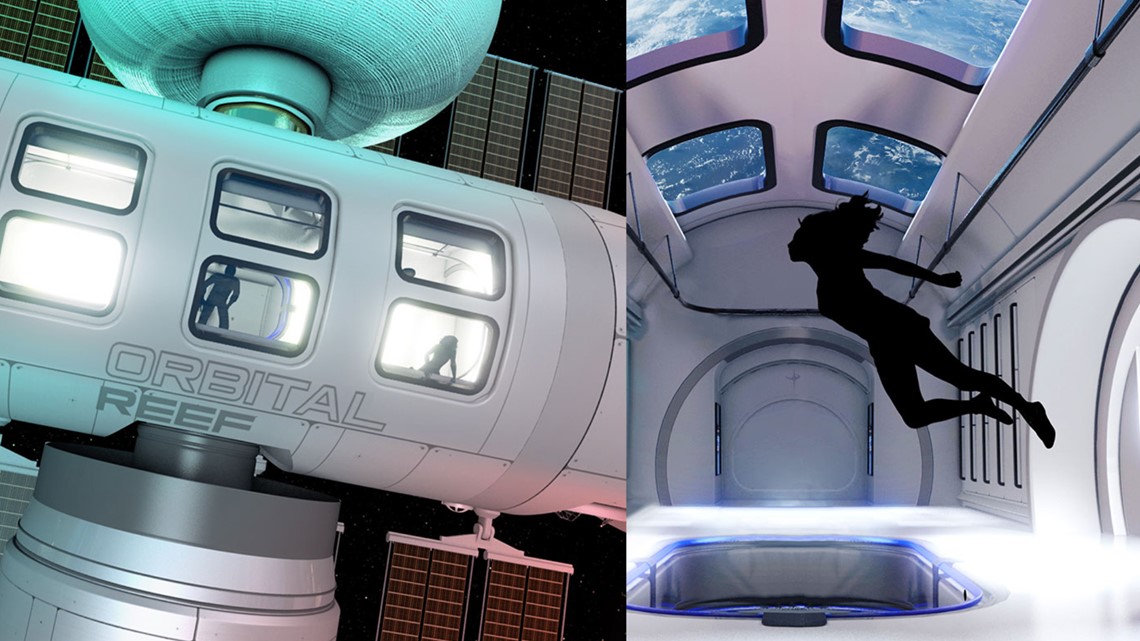
Nanoracks/Lockheed Martin: Starlab
A trio of space companies is also joining forces to dabble in the world of commercial space stations.
The only difference? Starlab, the brainchild of Nanoracks, Voyager Space and Lockheed Martin are looking to develop the "first-ever free-flying commercial space station" with a twist.
Starlab is slated to have an inflatable habitat design with a docking node, robotic arm, laboratory system and a power and propulsion element.
Much like the International Space Station, Starlab will be continuously crewed and "dedicated to conducting critical research, fostering industrial activity, and ensuring continued U.S. presence and leadership in low-Earth orbit."
According to a press release, the space station will be able to host up to four astronauts as they work on science and research. It will reportedly also serve as an outlet for tourism and business activities.
It is expected to reach its initial operation capabilities by 2027.

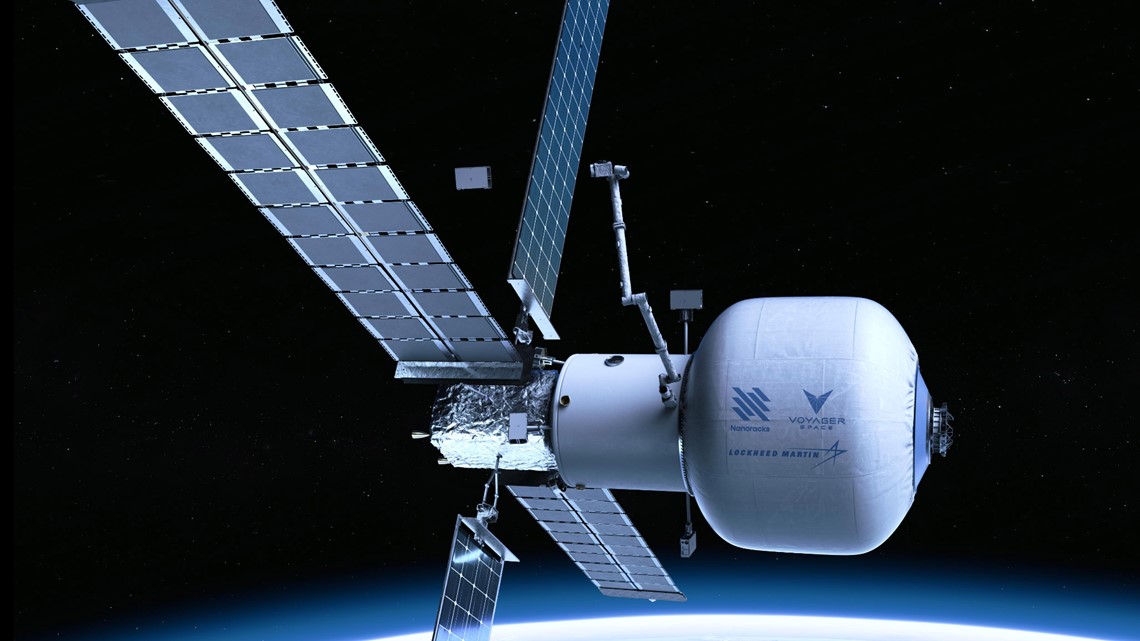
Axiom Space: Axiom Station
The company is developing the first commercial destination module for the International Space Station that can eventually be detached once the orbiting laboratory retires.
Axiom Station looks to help double the "useable volume" of the ISS and is scheduled for launch in late 2024.
"The element will attach to the space station’s Node 2 forward port to demonstrate its ability to provide products and services and begin the transition to a sustainable low-Earth orbit economy in which NASA is one of many customers," a press release reads.
So, how is this any different than the ISS? In the future, NASA says it plans to partner with Axiom Space to develop a free-flying commercial destination to "meet its long-term needs" beyond the current space station's life.

